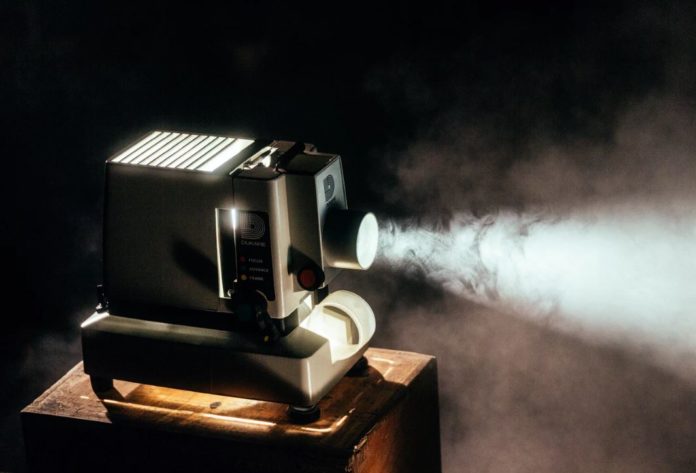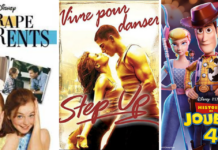There’s nothing quite like watching movies. They transport us to another world and help us forget about our daily woes. Whether you prefer action films or suspense, romance or comedies, scary movies or dramas, there is something for everyone. If you are tired of watching the same old Hollywood productions and want to watch something a little more foreign, then you are reading the right article. We’ve compiled a list of 15 award-winning francophone films that everyone should watch at least once in their lives. These films will make you laugh and cry and will probably teach you more about French culture than any language class you’ve ever taken. We guarantee you’ll be entertained but you will also practice your French at the same time. It’s a win-win situation! Happy movies!
15 Award-Winning Francophone Films
Grave (2016)
If you enjoy horror films then this is the movie for you. Grave (Raw) is a French-Belgian film directed by Julia Ducournau. The film premiered at the Cannes Festival in 2016 and was critically acclaimed although the graphic content did cause a bit of controversy. The film stars Garance Marillier who plays a young vegetarian in her first year at veterinary school. She is forced to eat meat during a hazing ritual at school and quickly develops a taste for raw (human) meat…If you are intrigued with cannibalism and don’t mind gore and violence then watch this horror film.
Les Enfants du Paradis (1945)
This black and white French film was filmed during the German occupation of France during World War II. It was directed by Marcel Carné and stars Arletty, Jean-Louis Barrault, Pierre Brasseur, Marcel Herrand and Pierre Renoir. The film is set during the 1820s and 1830s Parisian theatre scene. Garance (Arletty) is a beautiful courtesan who is courted and loved in very different ways by four men (a mime artist, an actor, a criminal and an aristocrat). This three-hour long movie was voted Best Film Ever in 1995 by cinematic professionals and is known as the French answer of the American classic Gone With the Wind.
J’ai tué ma mère (2001)
J’ai tué ma mère (I Killed My Mother) is Xavier Dolan’s (who is only 29 years old!!) directorial debut. This biographical drama tells the story of the complicated and hostile relationship between Hubert and his mother Chantale. Hubert has a difficult relationship with his mother and barely talks to his father since his parents divorced when he was younger. After a fight in the car on their way to Hubert’s school, he tells his teacher his mother is dead. After the teacher realizes it’s a lie, Hubert decided to write a school essay titled “I killed my mother”. Dolan was only 19 when he directed this film so there are some inconsistencies but it is still well worth the watch.
Orfeu Negro (1959)
This Franco-Italo-Brazillo film is technically Portuguese since the actors speak Portuguese throughout the film but since it was directed by a French director (Marcel Camus), we decided to include it on the list. The film is an adaption of Orpheus and Eurydice, a beautiful but tragic Greek legend. The film is set in a favela Rio de Janeiro, Brazil in modern times during the famous Carnaval. Eurydice played by Marpessa Dawn is new to Rio and rides the trolley which is driven by Orfeu (Breno Mello). Orfeu is engaged to another woman, Mira, but isn’t really in love with her. Eurydice ends up living next door to him and tells Orfeu that a strange man wants to kill her (Death). They fall in love but unfortunately, their love can’t keep fate from happening. The film won Best Foreign Language Film at the 1960 Oscars.
Il a déjà tes yeux (2016)
Now for something a little lighter. Il a déjà tes yeux (He Even Has Your Eyes) is a French comedy directed by Lucien Jean-Baptiste. The film stars Lucien Jean-Baptiste and Aïssa Maïga who play a married black couple who aren’t able to have a biological child. They are struggling with the adoption process also. Finally, the adoption papers get approved and the family can adopt a 4-month old white baby named Benjamin. The parents are ecstatic and think nothing can go wrong but, unfortunately, some people aren’t too happy with this match. Even though there are some serious themes in this film, you will still enjoy some laughs.
Sous le soleil de Satan (1987)
Sous le soleil de Satan, a French drama starring Gérard Depardieu and directed by Maurice Pialat, based on the novel of the same name written in 1926 by Georges Bernanos. The movie tells the story of a zealous Catholic Church priest in a small village in the North of France. The dean of the church keeps an eye on him because he has doubts about his vocation. At the same time, a sixteen-year-old pregnant girl named Mouchette kills her older lover by accident. The priest tries to lead her back to God but is unable. The film won the Palme d’Or at Cannes in 1987.
Rosetta (1999)
The Franco-Belgian film, Rosetta was written and directed by the Dardenne brothers and stars Émilie Dequenne. The movie tells the story of a seventeen-year-old girl living in a caravan park with her alcoholic mother. She tries to find a job to escape her sad faith in order for her to run away from living with her mother. She finds a job at a waffle stand after tattling to the boss about one of his employees’ side business. Rosetta is so depressed and unhappy that she tries to asphyxiate her and her mother in their caravan but an unlikely friend steps up to save her. The film was a great hit and Émilie Dequenne won Best Actress at the 1999 Cannes Film Festival.
La Graine et le Mulet (2007)
This Franco-Tunisian drama tells the story of an ageing immigrant named Slimane Beiji (Habib Boufares) living in Sete who wants to open a successful restaurant after being forced out of his current job at a shipyard. He wants to open a Tunisian restaurant in an old boat and serve his ex-wife’s delicious couscous meals she prepares on Sunday nights but his family doesn’t necessarily support his idea. They don’t support the idea because of all the French bureaucracy involved with this. This film was critically acclaimed and especially celebrated for the accurate and complex portrait of an immigrant family.
Les Quatre Cents Coups (1959)
Les Quatre Cents Coups is part of the French New Wave cinema. It was the directorial debut of François Truffaut. The movie stars Jean-Pierre Léaud, Albert Rémy and Claire Maurier and depicts the story of a rebellious teenage boy who has a complicated relationship with his parents and teachers at school. He quits school and tries to run away from home with his step father’s typewriter but is sent to jail for a night when he is apprehended by his stepfather. He is sent to an observation center for troubled youth near the seashore. The film was very well-received and was nominated at the Oscars and the Cannes Festival.
White material (2009)
White material stars Isabelle Huppert as Maria Val a struggling coffee producer and her husband Christophe Lambert as André in Africa. A civil war is erupting near them and the French military tries to convince Maria to flee the country because of the instability in the country but she ignores their warnings. The village where they live becomes dangerous and filled with child soldiers. André tries to sell the coffee plantation to a local man to be debt free so he can flee the country. The serious political and cultural themes in the film and Huppert’s realistic and powerful interpretation of Maria really steals the show.
À bout de souffle (1960)
This drama/detective film is one of the most famous films from the French New Wave. The film was directed by Jean-Luc Godard, one of the most famous French film directors. The story is about Michel Poiccard (played by Jean-Paul Belmondo) a young thug that steals a car and kills a gendarme while driving to Paris where he meets Patricia (played by Jean Seberg), an American woman he’s had a fleeting affair with. Michel tries to convince Patricia to sleep with him again but she always says no because she doesn’t love him. Michel wants to flee to Rome since his photo and name are in every newspaper because he killed a policeman. Unfortunately, Patricia is not loyal and reports him to the police.
Delicatessen (1991)
Delicatessen is a post-apocalyptic black comedy set in France. In this post-apocalyptic France, there is a huge shortage of food and grains are used as currency. A cruel butcher posts job offers for his butcher shop where he kills the people that want a job to sell their meat. Louison (played by Dominique Pinon) arrives at the butcher shop to get a job and becomes friends with the butcher’s daughter Julie (played by Marie-Laure Dougnac). She doesn’t want Louison to have the same fate as the other past workers so she asks a vegetarian rebel group to help her save him…The film was very well received and won many European awards.
Le Mépris (1963)
Another Jean-Luc Godard classic, Le Mépris is a French Italian New Wave film starring Brigitte Bardot, Jack Palance and Michel Piccoli. The film is based on the Italian novel Il disprezzo and tells the story of a young playwright named Paul Javal who reworks the script for the screen adaptation of the Odyssey. His wife, Camille Javal, does not love him anymore and suspects he is not faithful to her so she does it on purpose for her husband to find her with the American producer, Jack Palance…Even with the tragic end, this film was critically acclaimed and is one of the most famous French New Wave films of the 60s.
Irréversible (2002)
Irréversible is a French psychological thriller starring Vincent Cassel and Monica Bellucci. This is quite an intense movie, very graphic with difficult scenes of physical and sexual violence. The film is in a reverse chronology. Marcus (Cassel) and Alex (Bellucci) just found out they are expecting a child and go to a party with a friend. Alex leaves the party alone because of Marcus’ drug and alcohol use and flirtatious advances on other women. Alex sees a known pimp called The Tapeworm beating up a transsexual prostitute but quickly switches his attention towards her. He brutally and graphically rapes her and beats her. Marcus and his friend Pierre try to find the horrible man who raped Alex while she lays in a coma at the hospital. The reviews are very mixed since a lot of people left the screening during the Cannes Film Festival where it premiered.
La Noire de… (1966)
This black and white French-Senegalese film directed by Ousmane Sembène, often considered as the “father of African film”. The film tells the story of a young Senegalese woman named Diouana from Dakar who is excited to move to France to work for a wealthy French family. Unfortunately, the family does not treat her properly and uses her to work as a servant. Diouana feels more and more alienated and questions whether she should stay in France or not. The story goes from her current life living as a servant in France and her old life in Dakar. Her life with the French family quickly gets worse and worse and forces her to make a difficult decision. This film is considered to be the first Sub-Saharan African film to get international attention.
Would you recommend other award-winning francophone films?











